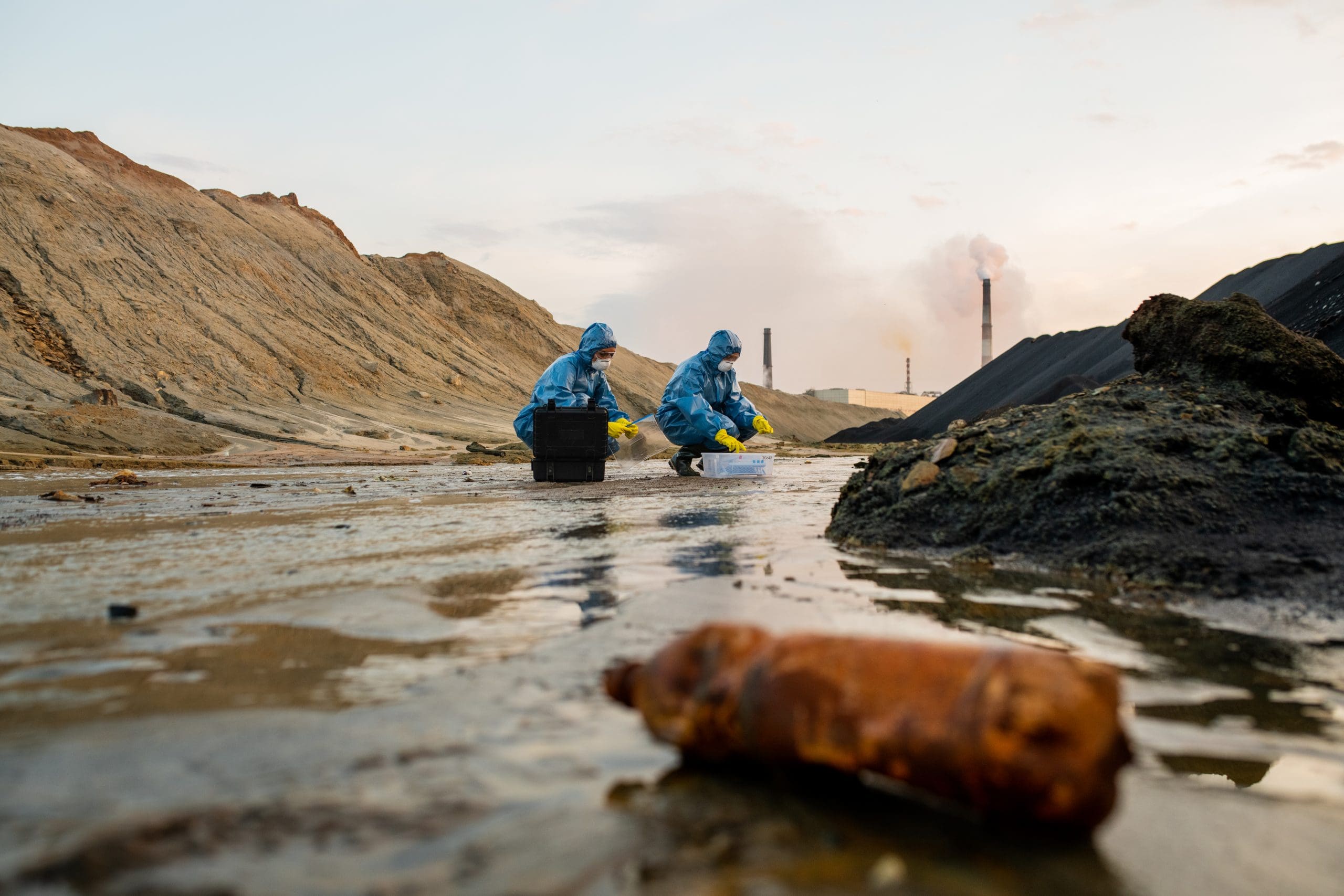10 PFAS Products to Avoid in the Workplace

Per- and polyfluoroalkyl substances (PFAS) are a group of man-made chemicals used for various industrial and commercial applications. PFAS products are found in many consumer and workplace products and are known to have adverse effects on human health and the environment. These chemicals do not break down easily and are considered to be significant environmental pollutants, especially around Chicago, IL, and the Great Lakes.
For this reason, many local companies have been exploring ways to reduce their use of PFAS products. One of those products is plastic water bottles. As a result, many businesses just like yours are switching to bottleless water coolers from Office H2O and encouraging employees to bring their own reusable bottles to work. Still, there are other areas in the workplace where your team may run into PFAS. Here’s a top 10 list and how you can help workers avoid them.
Recognizing PFAS in Everyday Items
Employees often come in contact with PFAS without even realizing it, as these substances are prevalent in numerous everyday products. Awareness is key to creating a safer work environment. Encourage your team to check labels and safety data sheets for any mention of fluorinated compounds, which is a tell-tale sign of PFAS. Additionally, items that are marketed as stain-resistant, water-resistant, or non-stick are often treated with these chemicals. Common objects like microwave popcorn bags, non-stick cookware, and waterproof clothing should be approached with caution. Provide training on identifying these products and consider authoring a list of common PFAS-containing items specific to your workplace. By educating your workforce on the presence of PFAS, you empower them to make healthier, more informed choices each day.
10 PFAS Products to Watch For
1.Non-stick Cookware
PFAS is commonly used in non-stick coatings on cookware to prevent food from sticking. If your company kitchen supplies these utensils, make sure they’re not coated in PFAS. These chemicals can leach into food, especially when heated. Instead, stock your workplace breakroom with cast iron, stainless steel, or ceramic cookware.
2. Food Packaging
Many fast-food wrappers, take-out containers, and pizza boxes contain PFAS to resist grease and moisture. When re-heated, these chemicals have the potential to leach into your lunch. Encourage employees to use glass containers or non-PFAS materials that won’t adversely affect their health.
3. Stain-Resistant Carpets and Upholstery
Carpets and upholstery treated to repel stains are often infused with PFAS due to their effective resistance to dirt, spills, and daily wear. As employees and customers move about, the friction from foot traffic can disturb these treated fibers, potentially releasing PFAS particles into the air. So, take precautions when choosing flooring and fabrics for your office.
4. Plastic Eating Utensils
Surprisingly, certain plastic forks, spoons, and straws may be laced with PFAS to enhance their durability and resistance to heat. Such single-use plastics not only contribute to PFAS exposure but also to environmental pollution. Encourage your team to use reusable utensils, which are not only safer for their health but also for the planet.

5. Shipping & Packaging
Products are frequently shipped with materials meant to protect them, but these packing materials, including some bubble wrap and shipping peanuts, may contain PFAS to repel water and resist tearing. This exposure can be a hidden danger in the workplace, especially during the unboxing process. Encourage a switch to eco-friendly alternatives such as biodegradable shipping peanuts, recyclable kraft paper, or wraps made from sustainable materials.
6. Office Furniture
Many office furniture pieces, such as chairs, cubicle walls, and even desks, are treated with PFAS for their stain-resistance and water-repellent properties. For example, office chairs often have PFAS in their fabric to protect against spills, while cubicle walls may contain these chemicals to stave off stains and keep a clean appearance. To avoid these risks, opt for furniture made with untreated materials, or seek out manufacturers that guarantee PFAS-free products.
7. Cleaning Products
Many commercial cleaning products contain PFAS to enhance their ability to repel grime and dirt. To avoid unintentionally introducing PFAS through routine cleaning, consider switching to eco-friendly cleaning solutions that use natural ingredients. Options like distilled white vinegar, baking soda, and citrus-based cleaners can be effective alternatives.
8. Paints and Coatings
PFAS chemicals are often utilized in industrial paints and coatings to enhance their water resistance and durability. These finishes can be found on walls, floors, and even outdoor structures, unwittingly exposing employees to these harmful substances. When maintenance is required, make sure employees have access to PPEs or make sure this area it closed off until work is complete.
9. Fire Retardants in Safety Equipment
Fire retardants are crucial for enhancing safety, but many such compounds incorporate PFAS to improve their effectiveness in suppressing flames. If an employee comes into contact with PFAS through these materials, it’s critical to promptly remove the contaminated clothing and to thoroughly wash any affected skin areas. To protect the rest of your team, regularly provide updated training sessions focused on handling and preventing the spread of these substances, and proactively seek out PFAS-free alternatives for fire safety gear.
10. Plastic Water Bottles and Jugs
Bottled water, including 5-gallon jugs, is perceived as a convenient and safe choice for office hydration. However, the plastic used in water bottles and jugs often contains PFAS to enhance their durability and resistance to heat. Over time, PFAS can leach into the water, particularly when bottles are exposed to sunlight or higher temperatures. To circumvent this health risk, workplaces can adopt bottleless water coolers, which directly connect to the water supply, and use advanced filtration systems to remove any contaminants, including PFAS.

The Ubiquity of PFAS: Why It’s Difficult to Avoid
PFAS, commonly referred to as “forever chemicals,” are so pervasive and persistent because of their robust molecular structure, which allows them to resist heat, water, and oil. Manufacturers have long favored PFAS for these properties, incorporating them extensively across a multitude of industries and consumer products. These substances are not only durable but remarkably versatile, lending themselves to usage in everything from food packaging to specialized industrial applications. And once they’ve been distributed into the environment, they don’t break down easily, leading to widespread and lasting contamination.
Moreover, the lack of comprehensive regulation for PFAS in many regions has meant that the production and use of these chemicals have expanded largely unchecked for years. This has resulted in a global environmental presence, with PFAS found even in remote areas and wildlife. The cycle perpetuates when these chemicals enter the water supply and food chain, where they accumulate over time. Even as awareness grows and actions are taken to limit their use, the sheer volume of items already saturated with PFAS ensures that we’ll be grappling with their presence for generations to come.
It is essential to be aware of the PFAS products in your workplace to minimize potential exposure. Although avoiding all of them may not be feasible, you can limit your exposure by choosing safer alternatives or reducing their use. As an employee, make sure you have access to adequate personal protective equipment, especially if your work involves handling PFAS-containing products. By making informed decisions, you can protect your health and the environment from the harmful effects of PFAS chemicals.
Get PFAS-Free Drinking Water
Businesses across the Midwest have a pivotal role in safeguarding health by investing in clean drinking water solutions, such as the advanced bottleless water coolers provided by Office H2O. These systems not only reduce the risk of PFAS exposure but also promote a more sustainable and environmentally friendly workplace. We encourage organizations committed to the health of their teams and the planet to reach out for a free 7-day trial of Office H2O’s bottleless water and ice coolers. Take a definitive step towards a safer, purer water supply today and set a precedence for a healthier tomorrow. Sign up for your free trial now!
